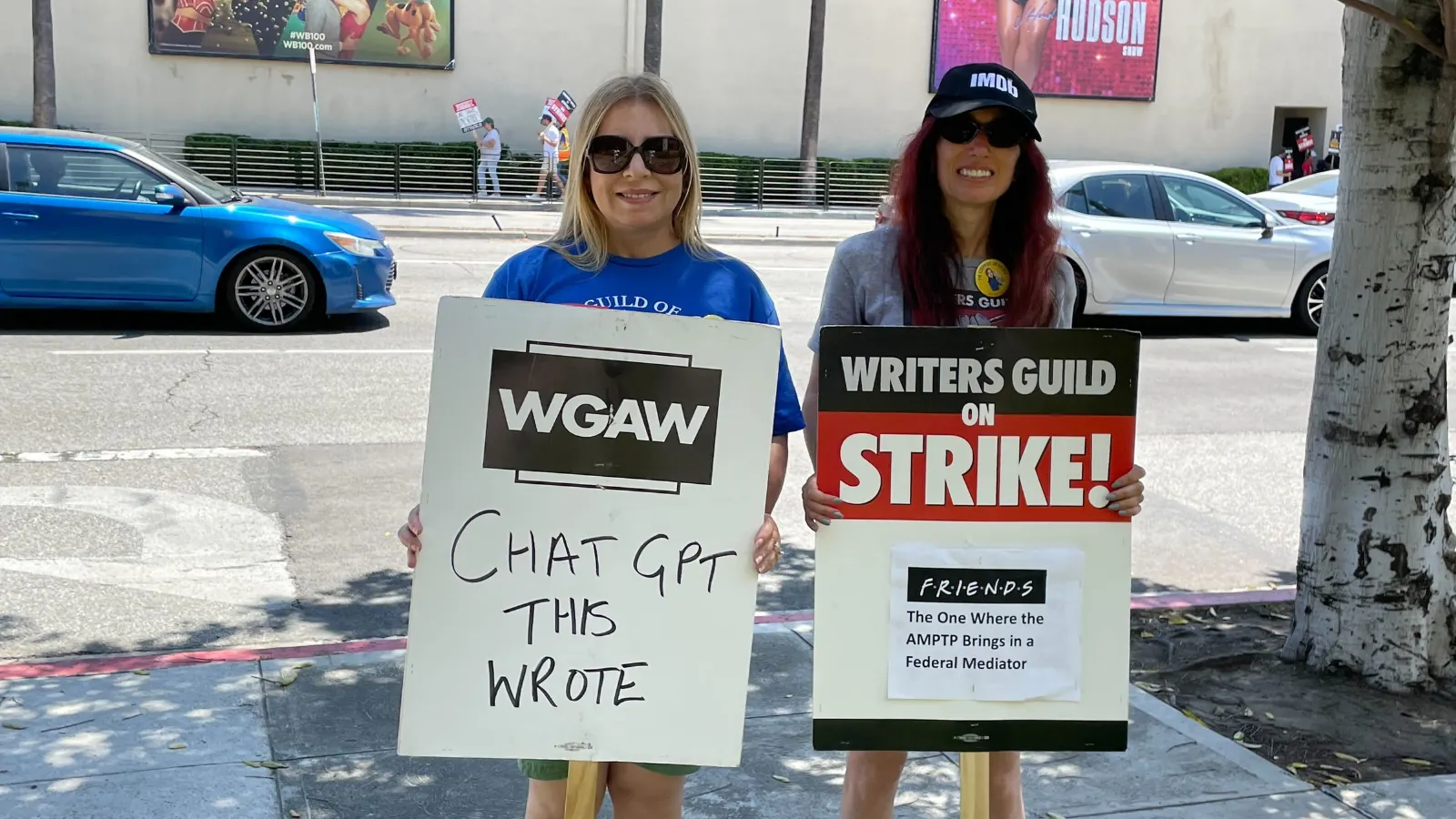As the WGA/SAG-AFTRA strikes continue to stall production on film and television projects, state and federal legislators are drafting bills to protect performers from the use of artificial intelligence to replace them.
Two of these bills—New York Senate Bill S7422, sponsored by New York Senator Lea Webb, and Assembly Bill A7634, sponsored by assembly member Demond Meeks—would prohibit production companies seeking the the Empire State Film Production Credit from using AI in place of people.
“This legislation seeks to protect creative workers by preventing the supplantation of their work by artificial intelligence,” the Senate Bill reads. “The continued investment by New York State in this tax credit program must be tied to the support of the workforce within the film and television production industry.”
Chicago-based outplacement firm Challenger, Gray, & Christmas recently reported nearly 4,000 jobs were lost due to artificial intelligence in May 2023 alone.
On the federal level, House of Representatives Bill H.R. 6553, dubbed the AI Jobs Act of 2022, aims to encourage innovation while focusing on training and retaining workers in the age of artificial intelligence. Sponsored by Florida Representative Darren Soto, the bill would require the Secretary of Labor to research and submit a report on AI and its impact on the American workforce, as well as provide recommendations to reduce the chance of humans being displaced by AI.
Last month, US Senators Bob Casey and Brian Schatz introduced The No Robot Bosses Act and the Exploitative Workplace Surveillance and Technologies Task Force Act, which aim to further worker protection.
The No Robot Bosses Act restricts the use of automated systems for employment decisions and requires human oversight. The Exploitative Workplace Surveillance and Technologies bill establishes a government task force to examine the impact of workplace surveillance and automated systems on employees.
The bills were co-sponsored by Senators John Fetterman, Bernie Sanders, and Cory Booker.
These proposed laws emerge as the Alliance of Motion Picture and Television Producers has contacted the Writers Guild of America requesting to restart negotiations, according to the Hollywood Reporter. These renewed talks would mark the first talks between the two groups since negotiations collapsed in May.
Generative AI is artificial intelligence designed to create new content, text, images, and music, mimicking artists or writers whose works are included in their dataset. Studios are betting big on the use of AI and offering hefty salaries to bring in top talent. Last month, Netflix published a job posting for a product manager role based on machine learning with a salary of up to $900,000.
Calling it “synthetic media,” the New York bills would cover any form of media, including text, images, video, or sound, whether it is fully or partially created using artificial intelligence.
AI has been a sticking point in the ongoing Hollywood negotiations, with neither side willing to budge on the emerging technology.
"People want to know that their jobs are protected," WGA and SAG-AFTRA member Gloria Bigalow previously told Decrypt outside Warner Brothers Studios in Burbank, Calif. "What the [WGA] is trying to do is protect us from what happens two, five, and 10 years from now."
The offices of Senator Webb and Assemblymember Meeks have not yet responded to Decrypt’s request for comment.

